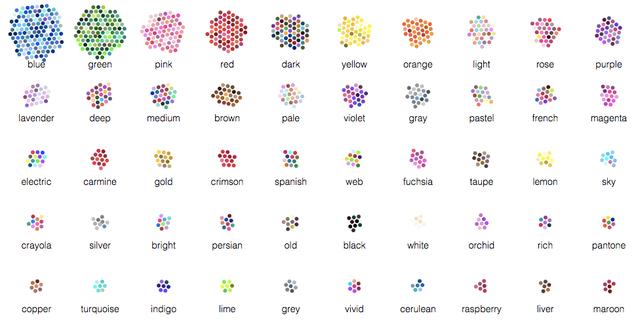Friday, December 05, 2014
cleveland overseers been WILDING!!!
By
CNu
at
December 05, 2014
14
comments
![]()
Labels: Ass Clownery , just-us , killer-ape , Rule of Law
ny police benevolent association president comply or die...,
nbcnews | The head of the New York police union said Thursday that a grand jury made the right call when it declined to indict an officer in the chokehold death of Eric Garner, an unarmed man, in July.
By
CNu
at
December 05, 2014
0
comments
![]()
Labels: Ass Clownery , Rule of Law
Thursday, December 04, 2014
Wednesday, December 03, 2014
don't hold your breath for that federal civil rights investigation of excessive use of force...,
For decades—centuries even—we’ve been discussing the intimate relationship between racism and capitalism in America, the ways that our economic system creates and maintains an underclass. Critics dismiss such an idea as some kind of conspiracy theory and continue touting the same tired American Dream narrative that has sustained us since the days of Horatio Alger.
By
CNu
at
December 03, 2014
5
comments
![]()
Labels: global system of 1% supremacy , Livestock Management , niggerization , Rule of Law , What IT DO Shawty...
speaking of crushing entire, twisted little fantasy worlds....,
By
CNu
at
December 03, 2014
0
comments
![]()
Labels: big don special
most legendary wild west outlaws were confederate guerrillas and bushwhackers...,
By
CNu
at
December 03, 2014
1 comments
![]()
Labels: American Original , civil war , Race and Ethnicity
like stick em up there's dirty history involved with overseers labor unions...,
By
CNu
at
December 03, 2014
0
comments
![]()
Labels: cognitive infiltration , History's Mysteries , institutional deconstruction
how police unions and arbitrators keep abusive overseers on the streets
By
CNu
at
December 03, 2014
0
comments
![]()
Labels: just-us , killer-ape , political economy , Rule of Law
Tuesday, December 02, 2014
la quenelle americain?
By
CNu
at
December 02, 2014
0
comments
![]()
Labels: American Original , civil war , Rule of Law
ok yankee, stick em up! (damn it's hard to find cowboy movie stick-up clips)
an attempt to stick up a local bank
[spoken] Thesaurus entry for this meaning of stick up
stick 'em up spoken if someone with a gun tells you to stick 'em up, they are ordering you to raise your arms above your head, usually because they are going to steal money or goods from you
By
CNu
at
December 02, 2014
0
comments
![]()
Labels: gestalt , Living Memory , quorum sensing?
thai's give the three-finger salute to their gun-wielding stick-up kids in uniform...,
By
CNu
at
December 02, 2014
0
comments
![]()
Labels: gestalt , micro-insurgencies , quorum sensing?
where oh where is dieudonné?
By professional athletes
By
CNu
at
December 02, 2014
0
comments
![]()
Labels: micro-insurgencies , quorum sensing?
Monday, December 01, 2014
corrupt overseer rooda a thug union leader and legislator opposed to video evidence of overseer misconduct...,
The SLPOA is calling for the players involved to be disciplined and for the Rams and the NFL to deliver a very public apology. Roorda said he planned to speak to the NFL and the Rams to voice his organization's displeasure tomorrow. He also plans to reach out to other police organizations in St. Louis and around the country to enlist their input on what the appropriate response from law enforcement should be. Roorda warned, "I know that there are those that will say that these players are simply exercising their First Amendment rights. Well I've got news for people who think that way, cops have first amendment [sic] rights too, and we plan to exercise ours. I'd remind the NFL and their players that it is not the violent thugs burning down buildings that buy their advertiser's [sic] products. It's cops and the good people of St. Louis and other NFL towns that do.
By
CNu
at
December 01, 2014
0
comments
![]()
Labels: priceless.... , Rule of Law
gladiators worth far more than overseers on this chessboard...,
By
CNu
at
December 01, 2014
4
comments
![]()
Labels: governance , institutional deconstruction , Livestock Management , What IT DO Shawty...
Sunday, November 30, 2014
bird bomb
NBC | KABUL, Afghanistan — Afghan police said they are investigating how a wild bird came to bear an antenna, electronic devices and explosives. Police came across the strange sight around 8 a.m. in the northern Faryab province, a volatile region ravaged by Taliban violence. When police spotted the white bird — which isn't native to the area and appeared larger than an eagle — walking along a highway, they noticed it had an antenna and decided to shoot it, provincial police chief Maj. Gen. Abdul Nabi Ilham told NBC News on Saturday. The bird then exploded, he said, and "suspicious metal stuff" scattered around.
By
Dale Asberry
at
November 30, 2014
3
comments
![]()
wanderers
Erik Wernquist | Best viewed full-screen.
WANDERERS is a short science fiction film by Erik Wernquist (that´s me) - a digital artist and animator from Stockholm, Sweden.
The film is a vision of our humanity's future expansion into the Solar System. Although admittedly speculative, the visuals in the film are all based on scientific ideas and concepts of what our future in space might look like, if it ever happens. All the locations depicted in the film are digital recreations of actual places in the Solar System, built from real photos and map data where available. For those interested in learning more of the places featured in the film, I recommend turning to the gallery section.
The title WANDERERS refer partly to the original meaning of the word "planet". In ancient greek, the planets visible in the sky were collectively called "aster planetes" which means "wandering star". It also refers to ourselves; for hundreds of thousands of years - the wanderers of the Earth. In time I hope we take that leap off the ground and permanently become wanderers of the sky. Wanderers among the wanderers.
There is no apparent story - other than what you might imagine for yourself - and the idea is primarily to show a glimpse of the fantastic and beautiful nature that surrounds us on our neighboring worlds - and above all, how it might appear to us if we were there.
By
Dale Asberry
at
November 30, 2014
0
comments
![]()
how english describes color vs. how chinese describes color...,
By
CNu
at
November 30, 2014
0
comments
![]()
Labels: cultural darwinism , neurotypes , Race and Ethnicity , What IT DO Shawty...
triangulating the long arc of the inevitable endgame...,
By
CNu
at
November 30, 2014
3
comments
![]()
Labels: American Original , individual vs. collective , neurotypes , quorum sensing? , What Now?
evolution of collaborative ability creates conditions for subsequent evolution
By
CNu
at
November 30, 2014
0
comments
![]()
Labels: American Original , cultural darwinism , de-evolution , doesn't end well , Race and Ethnicity
Saturday, November 29, 2014
negroes off your knees - on the current trajectory it's NOT going to get any better...,
By
CNu
at
November 29, 2014
4
comments
![]()
Labels: evolution , profitability , What IT DO Shawty...
Chipocalypse Now - I Love The Smell Of Deportations In The Morning
sky | Donald Trump has signalled his intention to send troops to Chicago to ramp up the deportation of illegal immigrants - by posting a...

-
theatlantic | The Ku Klux Klan, Ronald Reagan, and, for most of its history, the NRA all worked to control guns. The Founding Fathers...
-
NYTimes | The United States attorney in Manhattan is merging the two units in his office that prosecute terrorism and international narcot...
-
Wired Magazine sez - Biologists on the Verge of Creating New Form of Life ; What most researchers agree on is that the very first functionin...



